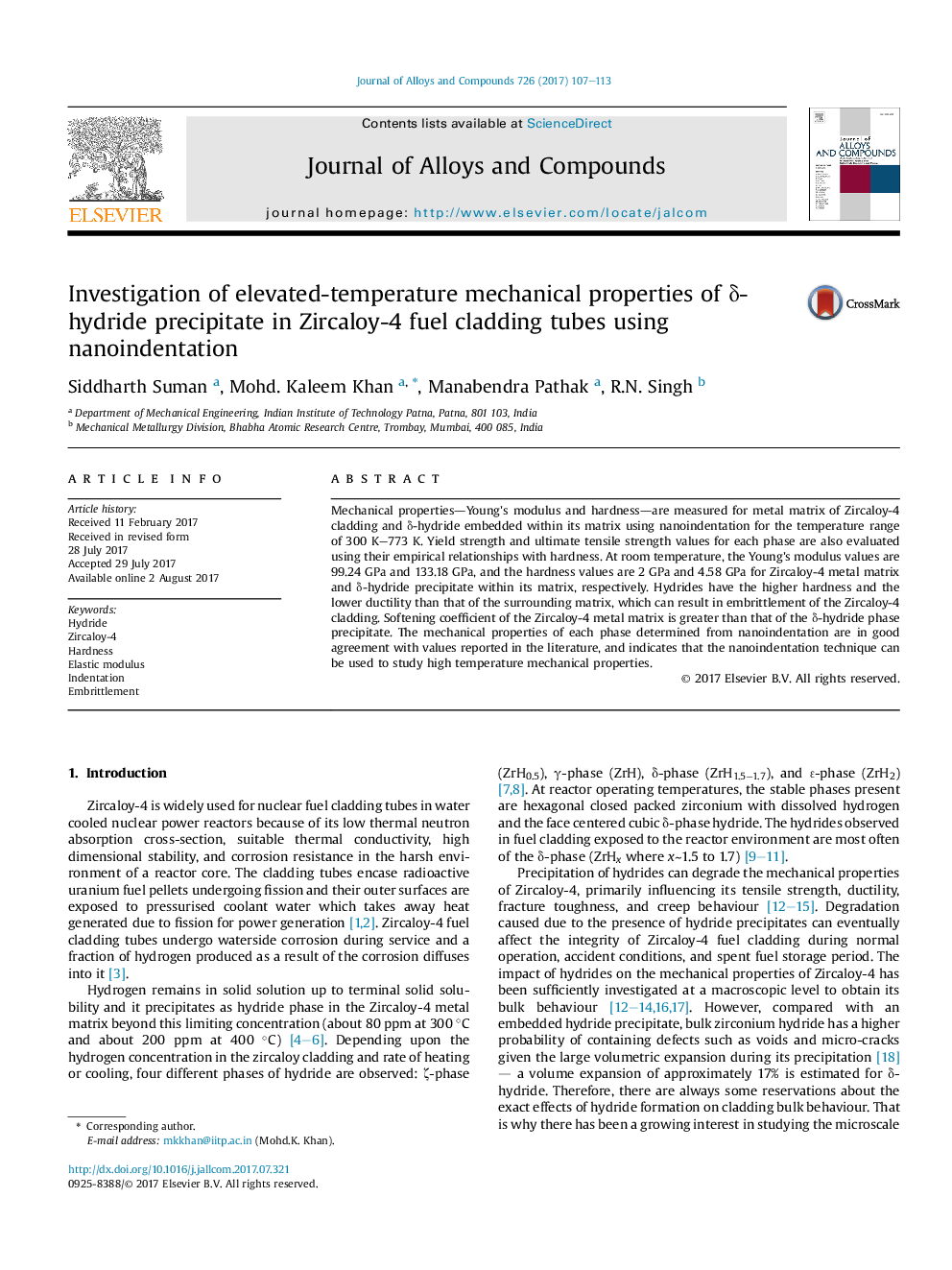| Article ID | Journal | Published Year | Pages | File Type |
|---|---|---|---|---|
| 5459327 | Journal of Alloys and Compounds | 2017 | 7 Pages |
Abstract
Mechanical properties-Young's modulus and hardness-are measured for metal matrix of Zircaloy-4 cladding and δ-hydride embedded within its matrix using nanoindentation for the temperature range of 300 K-773 K. Yield strength and ultimate tensile strength values for each phase are also evaluated using their empirical relationships with hardness. At room temperature, the Young's modulus values are 99.24 GPa and 133.18 GPa, and the hardness values are 2 GPa and 4.58 GPa for Zircaloy-4 metal matrix and δ-hydride precipitate within its matrix, respectively. Hydrides have the higher hardness and the lower ductility than that of the surrounding matrix, which can result in embrittlement of the Zircaloy-4 cladding. Softening coefficient of the Zircaloy-4 metal matrix is greater than that of the δ-hydride phase precipitate. The mechanical properties of each phase determined from nanoindentation are in good agreement with values reported in the literature, and indicates that the nanoindentation technique can be used to study high temperature mechanical properties.
Related Topics
Physical Sciences and Engineering
Materials Science
Metals and Alloys
Authors
Siddharth Suman, Mohd. Kaleem Khan, Manabendra Pathak, R.N. Singh,
